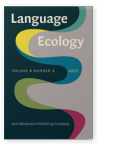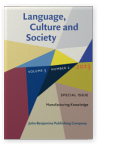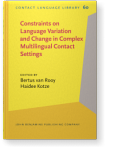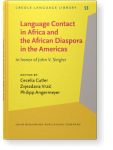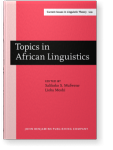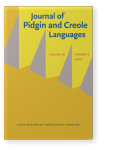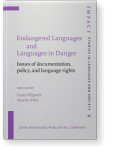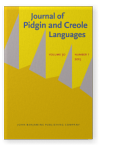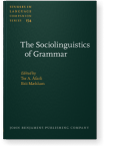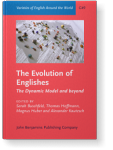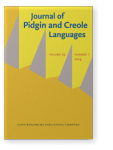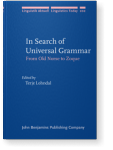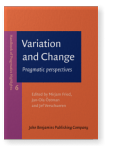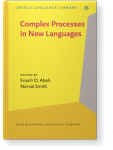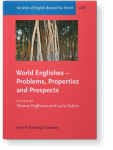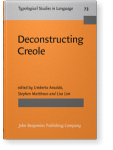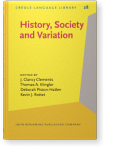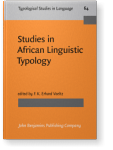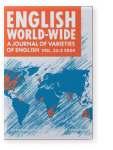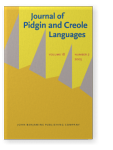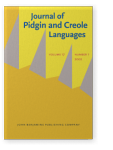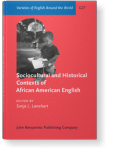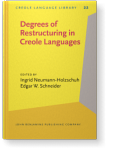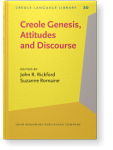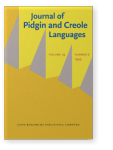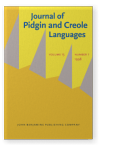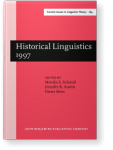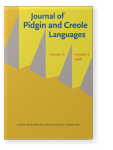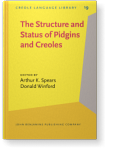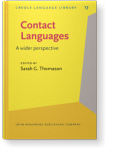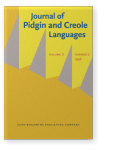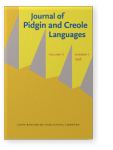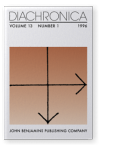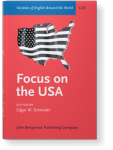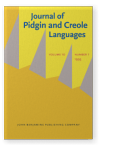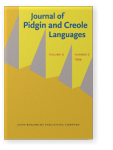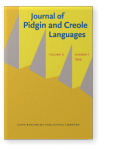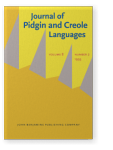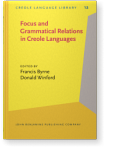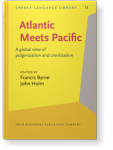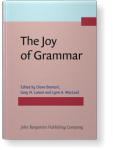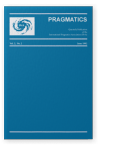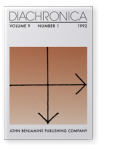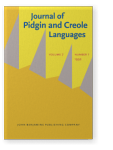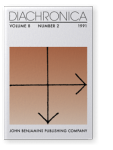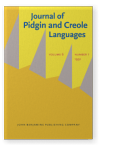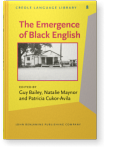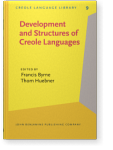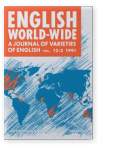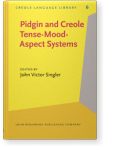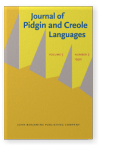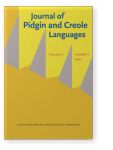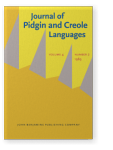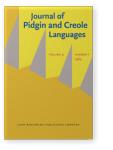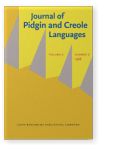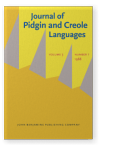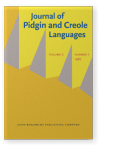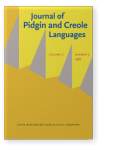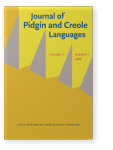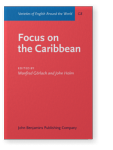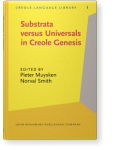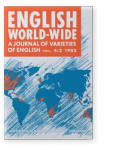Salikoko S. Mufwene
List of John Benjamins publications for which Salikoko S. Mufwene plays a role.
Journals
ISSN 2543-3164 | E-ISSN 2543-3156
Book series
Title
Topics in African Linguistics: Papers from the XXI Annual Conference on African Linguistics, University of Georgia, April 1990
Edited by Salikoko S. Mufwene and Lioba Moshi
[Current Issues in Linguistic Theory, 100] 1993. x, 304 pp.
Subjects Afro-Asiatic languages | Other African languages
2020 William J. Samarin: 7 February, 1926 – 16 January, 2020 Journal of Pidgin and Creole Languages 35:2, pp. 207–212 | Obituary
2020 Robert Chaudenson, 1937–2020 Journal of Pidgin and Creole Languages 35:2, pp. 213–217 | Obituary
2017 Individuals, populations, and timespace: Perspectives on the ecology of language revisited Language Ecology 1:1, pp. 75–103 | Article
In the present article we distinguish the concept of ecology of language as articulated in Mufwene (2001ff) from that of ecolinguistics developed especially by Mühlhäusler (1996ff), Fill and Mühlhäusler (2001), Couto (2009), and several contributors to Fill and Benz (to appear). We explain how… read more
2016 A cost-and-benefit approach to language loss Endangered Languages and Languages in Danger: Issues of documentation, policy, and language rights, Filipović, Luna and Martin Pütz (eds.), pp. 115–143 | Article
The linguistics discourse on language endangerment and loss has been marked by a number of disputable assumptions about what languages are and about the terrible price humanity incurs in losing linguistic and cultural diversity as some of them die. I dispute some of those assumptions, including the… read more
2014 Language ecology, language evolution, and the actuation question The Sociolinguistics of Grammar, Åfarli, Tor A. and Brit Mæhlum (eds.), pp. 13–36 | Article
I argue in this essay that from a phylogenetic perspective human languages emerged as communicative technologies responding to various ecological pressures experienced by the hominine species during its protracted evolution. The most important of these pressures were cognitive and social,… read more
2014 The English origins of African American Vernacular English: What Edgar W. Schneider has taught us The Evolution of Englishes: The Dynamic Model and beyond, Buschfeld, Sarah, Thomas Hoffmann, Magnus Huber and Alexander Kautzsch (eds.), pp. 349–364 | Article
This chapter shows how the English-origins hypothesis on the emergence of African American Vernacular English (AAVE) seems to prevail against the creole-origins alternative. My arguments are embedded in the socioeconomic history of contacts between African slaves and European colonists (mostly… read more
2013 Language as technology: Some questions that evolutionary linguistics should address In Search of Universal Grammar: From Old Norse to Zoque, Lohndal, Terje (ed.), pp. 327–358 | Article
Over the past two decades, studies of the phylogenetic emergence of language have typically focused on grammatical characteristics, especially those that distinguish modern languages from animal communication. The relevant literature has thus left the reader with the impression that language is… read more
2010 Creoles and creolization Variation and Change: Pragmatic perspectives, Fried, Mirjam, Jan-Ola Östman and Jef Verschueren (eds.), pp. 46–60 | Article
2009 Restructuring, hybridization, and complexity in language evolution Complex Processes in New Languages, Aboh, Enoch O. and Norval Smith (eds.), pp. 367–400 | Article
2009 The indigenization of English in North America World Englishes – Problems, Properties and Prospects: Selected papers from the 13th IAWE conference, Hoffmann, Thomas and Lucia Siebers (eds.), pp. 353–368 | Article
indigenization is interpreted below as the adaptation of a language to the communicative habits and needs of its speakers in a novel ecology. Thus North American Englishes are as indigenized as those of Asia and Africa. The equation for indigenization is the same, although the outcomes vary… read more
2007 The sociolinguistic history of the Peranakans: What it tells us about 'creolization' Deconstructing Creole, Ansaldo, Umberto, Stephen Matthews and Lisa Lim (eds.), pp. 203–226 | Article
2007 Creoles and creolization Handbook of Pragmatics: 2007 Installment, Östman, Jan-Ola and Jef Verschueren (eds.), pp. 1–17 | Article
2006 Albert Valdman on the development of creoles History, Society and Variation: In honor of Albert Valdman, Clements, J. Clancy, Thomas A. Klingler, Deborah Piston-Hatlen and Kevin J. Rottet (eds.), pp. 203–223 | Article
2006 How Bantu is Kiyansi? A re-examination of its verbal inflections Studies in African Linguistic Typology, Voeltz, F.K. Erhard (ed.), pp. 327–335 | Article
2001 2. What is African American English? Sociocultural and Historical Contexts of African American English, Lanehart, Sonja L. (ed.), pp. 21 ff. | Article
2000 Creolization is a social, not a structural, process Degrees of Restructuring in Creole Languages, Neumann-Holzschuh, Ingrid and Edgar W. Schneider (eds.), pp. 65 ff. | Article
1999 Accountability in Descriptions of Creoles Creole Genesis, Attitudes and Discourse: Studies celebrating Charlene J. Sato, Rickford, John R. and Suzanne Romaine (eds.), pp. 157 ff. | Article
1999 Review of Fisiak (1995): Linguistic change under contact conditions Journal of Pidgin and Creole Languages 14:2, pp. 418–424 | Review
1998 Salikoko S. Mufwene Journal of Pidgin and Creole Languages 13:1, p. | Miscellaneous
1998 What Research on Creole Genesis Can Contribute to Historical Linguistics Historical Linguistics 1997: Selected papers from the 13th International Conference on Historical Linguistics, Düsseldorf, 10–17 August 1997, Schmid, Monika S., Jennifer R. Austin and Dieter Stein (eds.), pp. 315 ff. | Article
1998 Review of Kouwenberg (1994): A grammar of Berbice Dutch Creole Journal of Pidgin and Creole Languages 13:2, pp. 381–389 | Review
1997 Jargons, pidgins, creoles, and koines: What are they? The Structure and Status of Pidgins and Creoles: Including selected papers from meetings of the Society for Pidgin and Creole linguistics, Spears, Arthur K. and Donald Winford (eds.), pp. 35 ff. | Article
1997 Kitúba Contact Languages: A wider perspective, Thomason, Sarah G. (ed.), pp. 173–208 | Article
1996 Creoles and creolization Handbook of Pragmatics: 1995 Installment, Verschueren, Jef, Jan-Ola Östman, Jan Blommaert † and Chris Bulcaen (eds.), pp. 1–14 | Article
1996 The Founder Principle in Creole Genesis Diachronica 13:1, pp. 83–134 | Article
SUMMARY In this paper, the author discusses one of the aspects of creole genesis from a population genetics perspective, analogizing 'language' with 'population' (rather than 'organism', the tradition in linguistics) and 'linguistic feature' with 'gene'. With language contact analogized to… read more
1996 The development of American Englishes: Some questions from a creole genesis perspective Focus on the USA, Schneider, Edgar W. (ed.), pp. 231 ff. | Article
1995 Review of Sutcliffe & Figueroa (1992): System in Black language Journal of Pidgin and Creole Languages 10:1, pp. 208–212 | Review
1994 Review of Wolf (1992): New departures in linguistics Journal of Pidgin and Creole Languages 9:2, pp. 414–416 | Review
1994 Review of Bright (1991): International encyclopedia of linguistics Journal of Pidgin and Creole Languages 9:1, pp. 198–205 | Review
1994 Guy Hazaël-Massieux 10 April 1936 - 5 July 1993 Journal of Pidgin and Creole Languages 9:1, pp. 95–101 | Miscellaneous
1993 Scope of Negation and Focus in Gullah Focus and Grammatical Relations in Creole Languages: Papers from the University of Chicago Conference on Focus and Grammatical Relations in Creole Languages, Byrne, Francis and Donald Winford (eds.), pp. 95 ff. | Article
1993 Are There Possessive Pronouns in Atlantic Creoles? Atlantic Meets Pacific: A global view of pidginization and creolization, Byrne, Francis and John Holm † (eds.), pp. 133 ff. | Article
1992 Why Grammars are Not Monolithic The Joy of Grammar: A festschrift in honor of James D. McCawley, Brentari, Diane, Gary N. Larson and Lynn A. MacLeod (eds.), pp. 225 ff. | Article
1992 Ideology and facts on African American English Pragmatics 2:2, pp. 141–166 | Article
1992 The Reviewer Responds Diachronica 9:1, pp. 149–151 | Miscellaneous
1992 Review of Todd (1990): Pidgins and creoles Journal of Pidgin and Creole Languages 7:1, pp. 164–168 | Review
1991 Language Genesis and Human Evolution Diachronica 8:2, pp. 239–254 | Article
1991 Review of Chaudenson (1988): Créoles et enseignement du français. Français, créolisation, créoles et français marginaux: Problèmes d’apprentissage, d’enseignement des langues et d’aménagement linguistique dans les espaces créolophones Journal of Pidgin and Creole Languages 6:1, pp. 148–155 | Review
1991 Is Gullah Decreolizing? A Comparison of a Speech Sample of the 1930s with a Sample of the 1980s The Emergence of Black English: Text and commentary, Bailey, Guy, Natalie Maynor and Patricia Cukor-Avila (eds.), pp. 213 ff. | Article
1991 Pidgins, Creoles, Typology, and Markedness Development and Structures of Creole Languages: Essays in honor of Derek Bickerton, Byrne, Francis and Thom Huebner (eds.), pp. 123 ff. | Article
1991 Some Reasons Why Gullah is not Dying Yet English World-Wide 12:2, pp. 215–243 | Article
1990 Time Reference in Kikongo-Kituba Pidgin and Creole Tense/Mood/Aspect Systems, Singler, John Victor (ed.), pp. 97 ff. | Article
1989 Colonial, Hypermetropic, And Wishful Linguistics Journal of Pidgin and Creole Languages 4:2, pp. 241–254 | Miscellaneous
1989 Some Explanations that Strike Me as Incomplete Journal of Pidgin and Creole Languages 4:1, pp. 117–128 | Miscellaneous
1988 Why Study Pidgins and Creoles? Journal of Pidgin and Creole Languages 3:2, pp. 265–276 | Miscellaneous
1988 Starting on the Wrong Foot Journal of Pidgin and Creole Languages 3:1, pp. 109–117 | Miscellaneous
1986 Restrictive Relativization in Gullah Journal of Pidgin and Creole Languages 1:1, pp. 1–31 | Article
It is argued in this paper that there are three kinds of relative clause (RC) strategies in Gullah: the deletion, WH-pronoun, and resumptive pronoun (RP) strategies. The deletion strategy applies to RC's beginning with a null (0) COMP or a purposive fuh, the WH strategy applies to Ø-COMP RC's, and… read more
1986 Notes on durative constructions in Jamaican and Guyanese Creole Focus on the Caribbean, Görlach, Manfred † and John Holm † (eds.), pp. 167 ff. | Article
1986 The Universalist and Substrate Hypotheses Complement One Another Substrata versus Universals in Creole Genesis: Papers from the Amsterdam Creole Workshop, April 1985, Muysken, Pieter and Norval Smith (eds.), pp. 129 ff. | Article
1983 Observations on Time Reference in Jamaican and Guyanese Creoles English World-Wide 4:2, pp. 199–229 | Article
